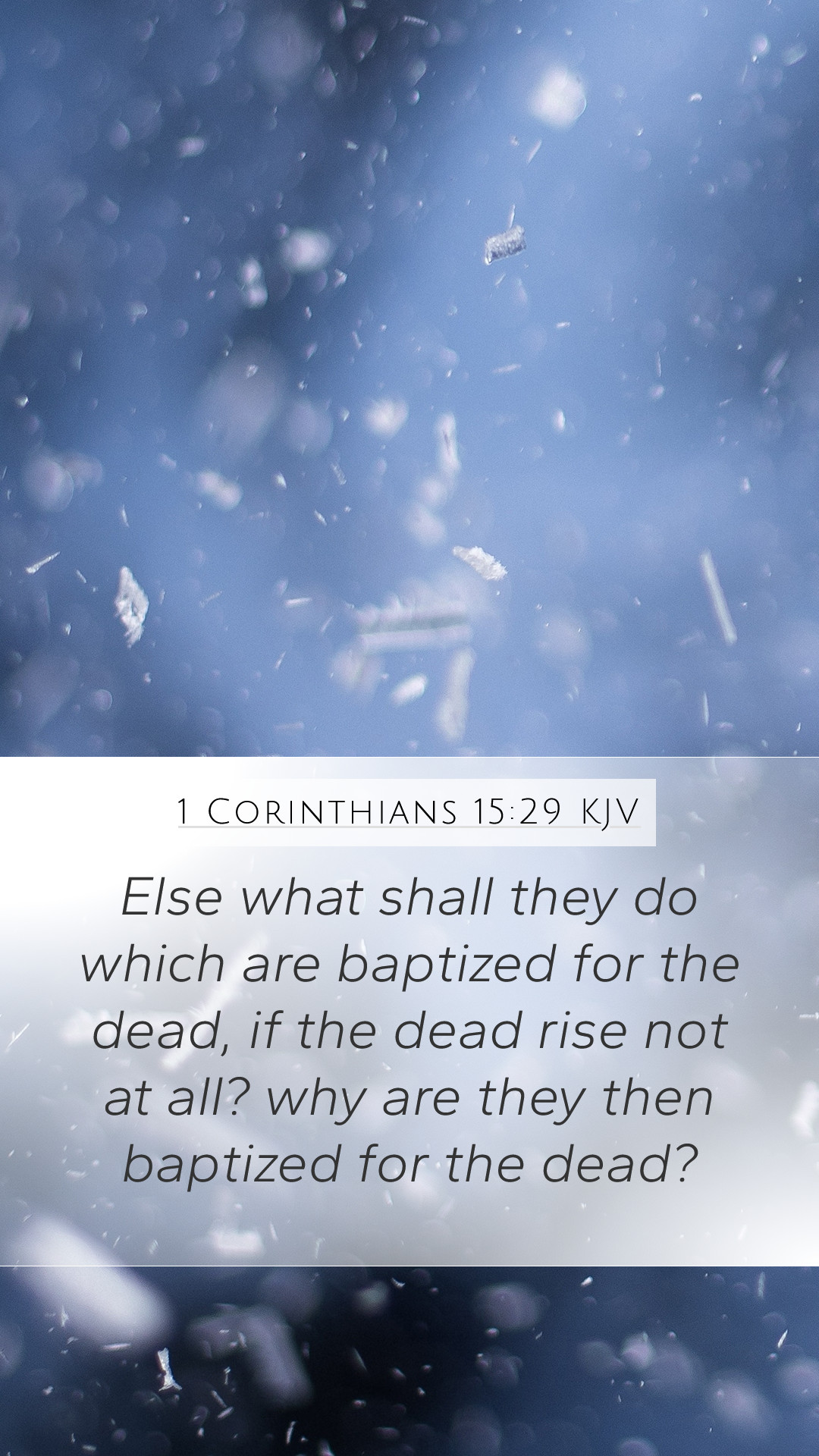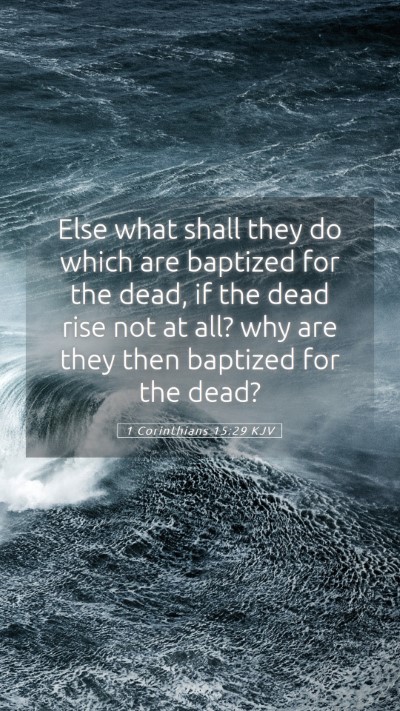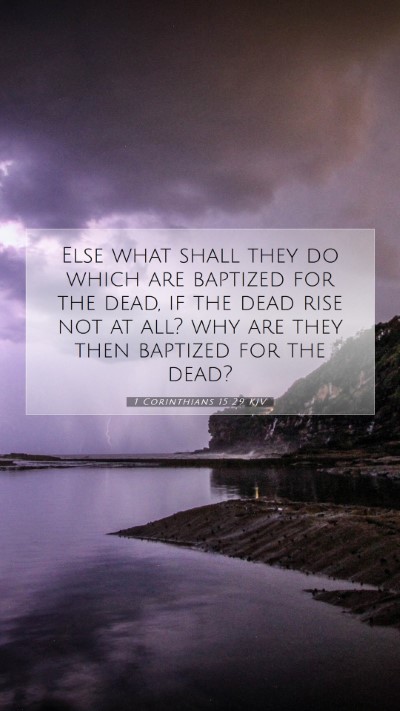Understanding 1 Corinthians 15:29
The Bible verse 1 Corinthians 15:29 states: “Else what shall they do which are baptized for the dead, if the dead rise not at all? why are they then baptized for the dead?” This perplexing verse has generated extensive debate among biblical scholars and theologians. In this analysis, we will explore its meaning and significance, drawing from public domain commentaries by Matthew Henry, Albert Barnes, and Adam Clarke.
Bible Verse Explanation
The Apostle Paul introduces a challenging subject regarding the resurrection of the dead. In this context, he references a practice that was presumably known in the Corinthian church—baptism for the dead. This raises several important questions regarding the interpretation of the verse and the implications of belief in life after death.
Contextual Background
To fully grasp the meaning of this verse, one must consider the historical and cultural context. The Corinthians faced issues regarding the resurrection; some members doubted its reality. Paul’s argument aims to affirm the truth of resurrection by pointing to practices incongruent with disbelief.
Key Insights from Commentaries
-
Matthew Henry:
Henry emphasizes that the act of baptizing for the dead suggests an ongoing belief in resurrection among certain groups. He argues that this behavior reflects the natural inclination of believers to honor deceased members of the faith community, highlighting the conviction that eternal life awaits after death.
-
Albert Barnes:
Barnes points out that while the specific practice of baptism for the dead is not abundantly explained in Scripture, it serves to underline the necessity of affirming resurrection hope. He views Paul's rhetorical questioning as a means to fosters deeper understanding of the relevance of resurrection in day-to-day faith practice.
-
Adam Clarke:
Clarke explores the nuances of the phrase "baptized for the dead," suggesting that it could imply an intercessory acknowledgment of those who have passed. He advocates the notion that this practice—though unclear—serves as a testament to the early church's belief in the resurrection.
Spiritual and Theological Significance
The theological implications of 1 Corinthians 15:29 extend beyond the immediate text, inviting believers to reflect on their understanding of life, death, and resurrection. It shows how early Christians grappled with the realities of faith, emphasizing that actions and beliefs surrounding death reflect a greater truth—resurrection.
Biblical Exegesis Insights
An in-depth biblical exegesis reveals that the verse seeks to invoke critical reflection. Paul does not endorse the practice; rather, he uses it as evidence to counter disbelief in the resurrection. This underscores the concept that baptism symbolizes death and resurrection, thus reflecting on the believers' ultimate hope.
Applying the Verse in Daily Life
-
Reflection on Beliefs:
Believers are encouraged to examine their convictions about life after death. This verse prompts questions regarding personal faith and the implications of spiritual practices aligned with those convictions.
-
Community Practices:
The verse invites communities to think critically about their rituals and how they reflect beliefs regarding life, death, and resurrection, potentially leading to more profound spiritual practices.
-
Hope and Assurance:
It drives home the message of hope in resurrection, assuring the faithful that this life is not the end—a vital assurance in times of loss or grief.
Cross References
-
Romans 6:3-5: Discusses baptism as a representation of death and resurrection.
-
1 Thessalonians 4:14: The hope of resurrection for those who have died in Christ.
-
Hebrews 11:35: Highlights the encouragement for believers who face trials related to their faith in resurrection.
Conclusion
In conclusion, 1 Corinthians 15:29 is a multifaceted verse that challenges readers to delve into the deep connections between faith, community practices, and resurrection belief. By understanding the implications of this verse, one can gain valuable insights into the essence of Christian hope and the importance of spiritual convictions pertaining to life after death.


